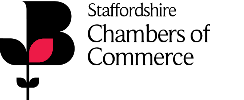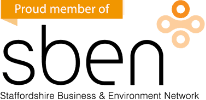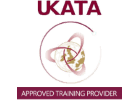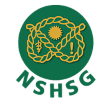First Aid - A personal point of view.
First Aid Training - Personally speaking.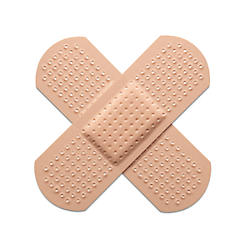
All being well, with sufficient planning, preparation, policies & procedures in place, the times that you need to rely on your First Aid training at work will hopefully be few and far between...
BUT, it remains a legal requirement to provide adequate and appropriate first aid equipment, facilities and people, as stipulated by the Health and Safety (First Aid) Regulations 1981.
On this rare occasion, we're going to throw the regulations out of the window for the time being and highlight the importance of providing appropriate first aid training and equipment, from a personal point of view, as told by one of our directors.
So, who am I?...
A director, a worker, a cyclist, a parent, a friend, a brother, a driver, a trainer, a H&S pro, a gardener, a camper, a golfer, a foodie, a DIYer...
What's in my first aid kit?...
A combination or all of the following: Guidance leaflet, sterile plasters in a range of sizes (including Thomas The Tank engine for the kids!), eye pads, triangular bandages, safety pins, micropore tape, range of sterile dressings, tubular bandages, disposable gloves, aspirin, calpol, foil blanket, scissors (2 sizes), tweezers, antiseptic wipes, ice pack, burn gel, germoline, eye wash pods, instant ice pack, butterfly stitches, pen torch & pupil gauge, tweezers, mouth guard, paracord, pen & paper. What can I say, I used to be a boy scout!
Where do I keep a first aid kit?...
My car, my partner’s car, my office, my home and my suitcase when travelling!
Here are my personal experiences when I've needed to call on the skills gained as a First Aider...
Out socialising with friends, being able to recognise that a woman in the bar was indeed suffering a stroke. Her party assumed that she was ok and had simply "had one too many", recognising early warning signs and getting early treatment by the emergency may have prevented or lessened permanent damage - I'll never know!
On a near daily basis as a parent I'm able to confidently treat minor cuts, grazes, bumps, stings, remove splinters, remove dust from little eyeballs and recognise signs of ill health.
I've been able to self diagnose a broken metatarsal and seek appropriate medical attention, not trying to "run it off" causing further complications and hindering the healing process.
Sadly, I was once the first person on the scene of an RTA where a light goods vehicle had crashed through a boundary wall. There was significant damage to both the vehicle and the structure of the wall, the driver was unresponsive. Firstly I was able to turn off the vehicles engine and apply the brakes to prevent the situation from worsening. Next I was on the phone to the emergency services whilst assessing the driver; I was able to relay that the driver was unresponsive, had no pulse and was not breathing. I was unable to remove the driver from the cab of the vehicle, however I was able to clear his airway, loosen clothing & remove the seatbelt, and began to perform CPR until the emergency services arrived.
The emergency services worked on the casualty for what seemed like a lifetime, unfortunately he was pronounced dead at the scene shortly afterwards.
What benefit or purpose did I serve in this situation you may ask? I was able to prevent the situation worsening, I was able to remain calm, I was able to liaise with emergency services and was able to give the casualty every chance of surviving the incident. I subsequently found out that the driver had suffered a massive heart attack whilst driving and in reality there was nothing that I could have done to influence the outcome... On another day it may have had a different, happier outcome.
Finally, back to the First Aid regulations, but only briefly.
As an employer, what first aid provisions must I provide by law and how do I comply with the First Aid Regulations in my workplace? Simple, put the following things in place...
- A Suitably stocked firsts-aid-kit
- An appointed person to take charge of first aid arrangements
- Information for employees.
Remember, accidents and ill health are unplanned and so it is vital, or even critical, that first aid provisions are available AT ALL TIMES and are PROPORTIONATE to the hazards involved.
We appreciate that there are lots of training providers out there, we're not saying to use us (though we'd love to provide your firsts aid training obviously!), but the underlying message is that first aid training is obviously very important in both your work, and family & personal life... critically important you could say!
People often think that first aid is all about treating bumps, bruises, cuts & abrasions; there really is a lot more to it, including managing an emergency situation, liaising with emergency services, recognising ill health, dealing with shock, treating burns, using an AED, electric shock, cardiac arrest, stroke, fits, diabetic episodes, choking... or simply comforting and reassuring a casualty until the emergency services arrive.
Please, please, please, do ensure that you are prepared and confident to deal with almost any situation that you may find yourself in as it may save the life of a colleague, friend, stranger or family member.
If you enjoy reading our articles, please feel free to share them by clicking the tab(s) below.
Tweet More Articles






